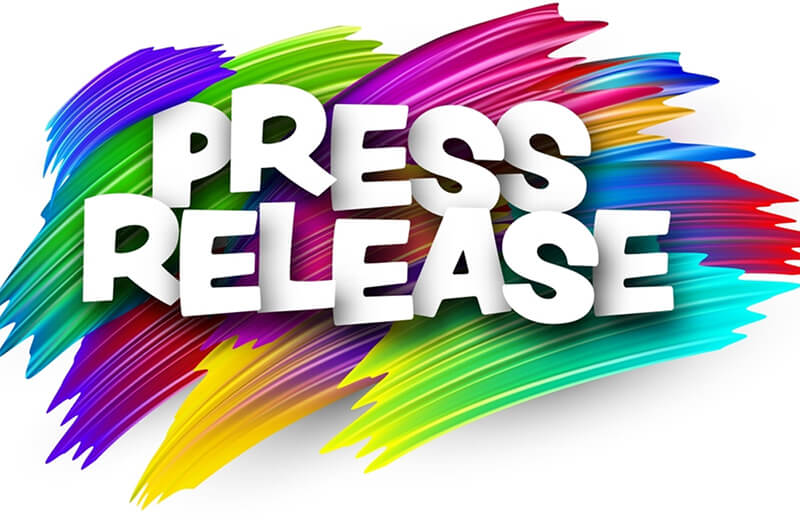How Medication Management Supports Well-being

Effective medication management is crucial for ensuring that individuals receive the correct medications, in the right doses, and at the right times. This helps prevent errors, manage side effects, and improve health outcomes, especially for those with chronic conditions. Proper management encourages medication adherence, reduces hospital visits, and empowers individuals to take control of their health.
Tampa, FL, United States, 13th Dec 2024 – Effective medication management plays a vital role in supporting overall well-being, ensuring that individuals get the right medications in the proper doses at the right times. By staying organized and informed about prescriptions, it helps prevent errors and potential side effects, leading to better health outcomes. It also encourages consistency in taking medications, which is essential for treating chronic conditions and improving quality of life. Proper management can reduce unnecessary hospital visits, alleviate symptoms, and empower individuals to take control of their health in a proactive way.
The Importance of Medication Adherence
Effective medication management starts with adherence to prescribed treatments. When individuals consistently follow their healthcare provider’s instructions, it significantly improves the effectiveness of the medication. Missing doses or taking medications incorrectly can result in treatment failure, worsening symptoms, and complications. This is especially critical for chronic conditions like diabetes, hypertension, or mental health disorders, where consistency is key.
Additionally, improving adherence reduces the need for frequent adjustments to the treatment plan, which can be time-consuming and costly. With the right tools, such as pill organizers or medication tracking apps, individuals can feel more empowered and confident in managing their health. Consistent medication intake ensures that the body responds to treatment in the most effective way, helping to prevent setbacks in recovery or worsening of the condition.
Avoiding Medication Errors
Medication errors can have serious consequences, leading to side effects, unnecessary complications, or even worsening of a condition. These errors may occur at any stage, from the prescribing process to the dispensing or administration of the medication. One common mistake is confusion between similar-looking or sounding medications, which can be easily avoided through clear communication with healthcare providers and pharmacists.
Educating both patients and caregivers about potential risks, such as common drug interactions or allergies, plays a crucial role in preventing these errors. It is also important to regularly review medications with healthcare providers to ensure their continued effectiveness and safety. By staying informed, asking questions, and being vigilant about medication use, individuals can protect themselves from unnecessary mistakes and improve their health outcomes.
Simplifying Complex Medication Regimens
For those managing multiple medications, keeping track of different schedules, dosages, and instructions can feel overwhelming. Simplifying medication regimens is essential for better adherence and reducing the risk of errors. One effective method is to consolidate medications into fewer doses, whenever possible. By coordinating with a healthcare provider to combine treatments or adjust dosages, individuals can make their regimen more manageable.
In addition to simplifying dosages, using tools like pill organizers or presorted medication packs can further reduce the complexity of daily routines. These tools allow individuals to clearly see when medications are due and help avoid the confusion that can arise from remembering multiple doses. Medication management apps also play a significant role in simplifying regimens by sending reminders and keeping track of progress.
Preventing Drug Interactions
Drug interactions occur when two or more medications interfere with each other, either diminishing their effectiveness or causing harmful side effects. Managing these interactions is a critical aspect of medication management, as it ensures the safety and efficacy of treatment. Healthcare providers typically review all medications during appointments, including over-the-counter drugs and supplements, to identify any potential interactions.
To further mitigate the risk of drug interactions, individuals should seek guidance from pharmacists or use drug interaction checkers available online or within medication management apps. These tools can help flag potential issues before they arise, providing peace of mind and ensuring that each medication works as intended.
Maximizing the Effectiveness of Medications
Maximizing the effectiveness of prescribed medications is a crucial goal in any treatment plan. Ensuring medications are taken at the correct time and with the appropriate food or water intake can make a significant difference in how well a medication works. Some drugs are absorbed better with food, while others may need to be taken on an empty stomach for optimal results. Knowing these details can help individuals experience the full benefits of their treatment and avoid any setbacks.
Another important aspect of maximizing medication effectiveness is maintaining open communication with healthcare providers. Regular follow-ups allow for adjustments to the treatment plan, ensuring that medications remain effective as health needs change. If side effects are experienced, providers can often offer alternative medications or strategies to manage them.
Managing Medication Side Effects
Every medication has the potential to cause side effects, but not everyone experiences them. Managing side effects is key to successful treatment, preventing premature discontinuation. When side effects occur, it’s important to consult a healthcare provider who can adjust the dosage or recommend alternatives. Proactively reporting issues ensures they’re addressed before worsening, improving treatment compliance. In addition to professional guidance, lifestyle adjustments can help manage certain side effects. For example, dizziness or fatigue may be alleviated by avoiding specific activities or staying hydrated. Diet, sleep, and exercise changes can also reduce or eliminate discomfort caused by medications.
Potential Side Effects of Medications
Every medication carries the potential for side effects, but these vary between individuals. Not everyone will experience them, and some may have mild or no reactions at all. Understanding that side effects are a possibility helps patients and caregivers stay proactive in managing any issues that arise, ensuring continuous treatment.
Importance of Managing Side Effects
Effective management of side effects is essential to avoid treatment discontinuation. When side effects arise, addressing them early prevents frustration and allows patients to continue their treatment regimen. If side effects are left unaddressed, they may discourage patients from following through with prescribed medications, ultimately impacting their health outcomes.
Consulting a Healthcare Provider
If side effects are experienced, it’s vital to communicate with a healthcare provider. They can offer solutions such as adjusting medication dosages, changing medications, or adding treatments to manage the side effects. Professional guidance helps minimize discomfort and ensures that the treatment plan remains both effective and safe for the individual.
Lifestyle Adjustments to Manage Side Effects
Some side effects, like dizziness or fatigue, can be mitigated through lifestyle adjustments. For example, avoiding certain activities that may trigger dizziness, or ensuring adequate hydration, can reduce symptoms. Simple changes to everyday habits can make a significant difference in how a person feels while undergoing medication treatment.
Diet, Sleep, and Exercise Modifications
In some cases, adjusting diet, sleep patterns, or exercise routines can alleviate uncomfortable side effects. Foods rich in vitamins or hydration may counteract fatigue, while establishing a consistent sleep schedule can improve energy levels. Regular, moderate exercise can also reduce feelings of lethargy and promote better overall health during treatment.
Conclusion
Medication management plays a pivotal role in supporting overall well-being, ensuring that individuals can lead healthier, more balanced lives. By adhering to the prescribed regimen and addressing any concerns with a healthcare professional, individuals can maximize the benefits of their medications while minimizing risks. At Prana Wellness, we understand the importance of personalized medication management and are dedicated to providing guidance and support to help you navigate your wellness journey.
If you have any questions or need assistance with your medication management plan, our team at Prana Wellness in Tampa, Florida, is here to help. Reach out today at 813-592-4275 to schedule a consultation and take the first step toward better health and well-being. Let us help you achieve optimal health with the right support and resources.
Prana Wellness, LLC
14502 N Dale Mabry Hwy, Tampa, FL 33618
+18135924275
https://pranawellnesstampa.com/
Media Contact
Organization: Prana Wellness, LLC
Contact Person: Prana Wellness, LLC
Website: https://pranawellnesstampa.com/
Email: Send Email
Contact Number: +18135924275
Address: 14502 N Dale Mabry Hwy, Tampa, FL 33618
City: Tampa
State: FL
Country: United States
Release Id: 13122421344
